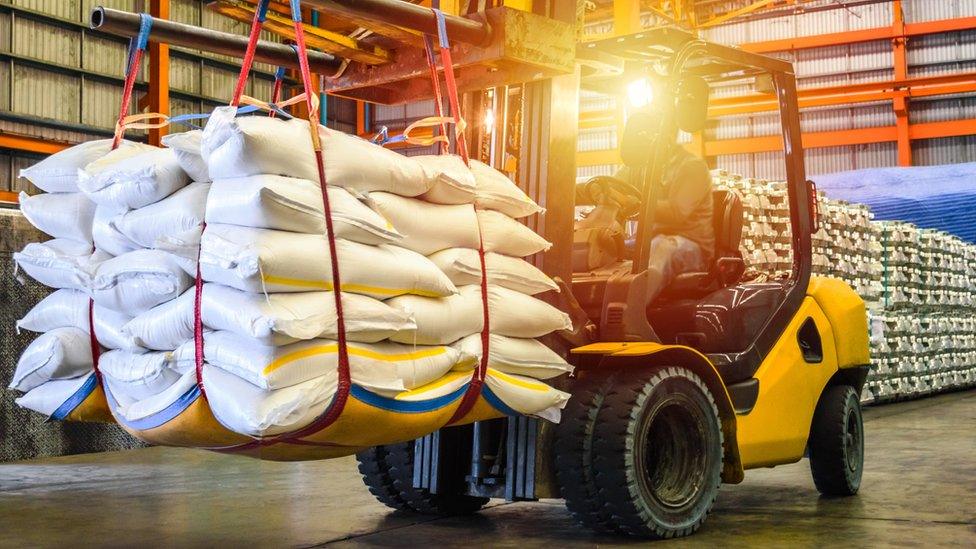Service sector shock sparks downturn fears
- Published

An influential survey pointing to a decline in the service sector has sparked fears that the UK could be heading for a downturn.
The sector, which accounts for 80% of the UK economy, unexpectedly shrank for the first time in almost three years last month, the survey indicates.
The purchasing managers' index, external from IHS Markit/CIPS fell to 48.9 in March from 51.3 in February, below forecasts.
Any figure below below 50 shows a contraction in the sector.
It is the first time the index has fallen below 50 since July 2016, which was immediately after the UK voted to leave the European Union.
IHS Markit's chief economist Chris Williamson said its survey indicated the UK economy shrank in March and had stalled over the first quarter as a whole.
He said it was now "at risk of sliding into a deepening downturn in coming months".
"A stalling of the economy in the first quarter will therefore likely turn into a downturn in the second quarter unless demand revives suddenly which, given the recent escalation of Brexit uncertainty, seems highly improbable," he added.
Brexit hit
Markit said the current political uncertainty over Brexit meant both businesses and consumers had reined in spending.
It said new order inflows had now deteriorated for three months in a row, representing the longest period of falling sales since the first half of 2009.
"Widespread reports" indicated clients were hoping for clarity about Brexit before committing to new projects, it said.
The UK economy has been sluggish, expanding at its slowest annual rate in six years in 2018 after a sharp contraction in December.
Earlier this week, separate data from IHS Markit/CIPS showed that UK construction activity slowed slightly for the second month in a row in March, with the index remaining below the 50 mark that divides growth from contraction.
It was the first back-to-back fall in output since August 2016, just after Britain voted to leave the EU.
"Both the services and construction sectors are now in decline and manufacturing is only expanding because of emergency stockpiling ahead of Brexit," said Mr Williamson.
He said the "underlying picture of demand" was even worse than the headline numbers suggested, with "companies reporting that Brexit uncertainty has dampened demand and led to cancelled or deferred spending, exacerbating a headwind from slower global economic growth".
He said IHS Markit now expected the UK economy to growth by just 0.8% this year, well below the more optimistic 1.3% consensus forecast of economists.
"Even this modest performance is perhaps somewhat hopeful, given the recent lack of any Brexit developments," he added.
- Published3 April 2019

- Published1 April 2019

- Published1 April 2019
